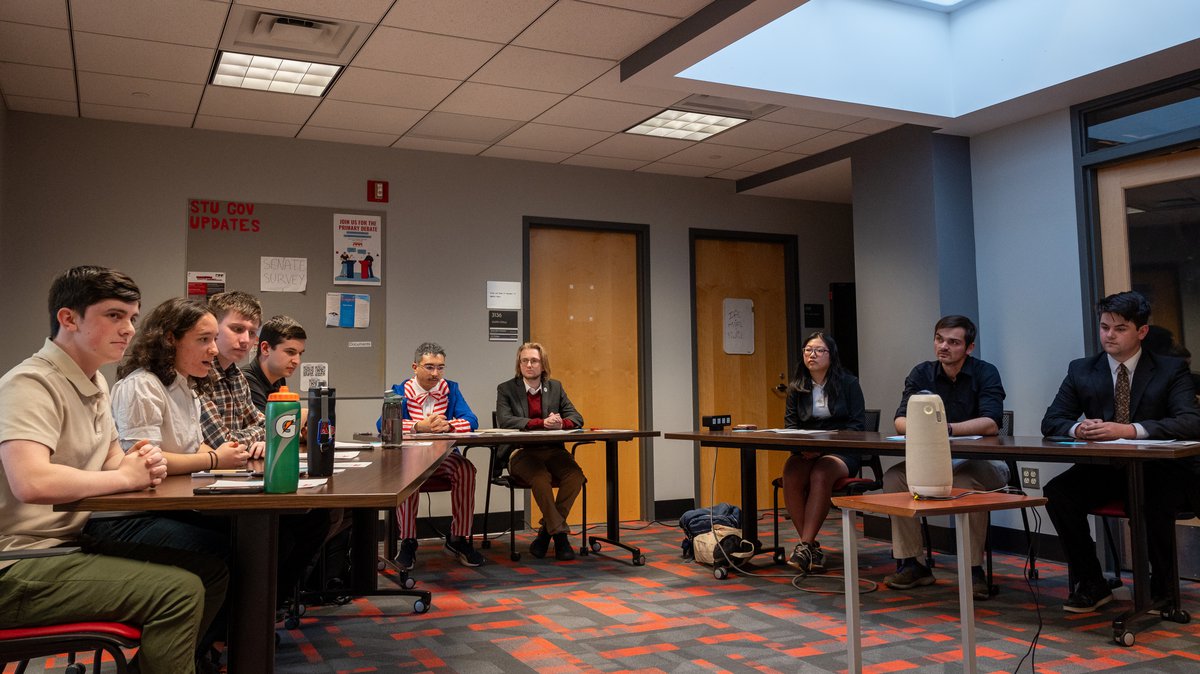Freshmen Elections Handbook receives major updates
The Student Senate, in their meeting last Monday, pushed a very important piece of new business to the beginning of their agenda to ensure they were able to approve it. The motion included several amendments that the Elections Committee had approved for the Freshmen Elections Handbook. The Handbook provides all freshmen running for office with necessary information regarding the election process.
Jacob Lorelli ’25, the new Elections Commission chair, presented numerous provisional changes to the handbook that needed approval from the Senate to go into effect. Getting approval was crucial, as the freshmen election process has already begun with candidacy forms being due by October 18. Several calendar dates were changed for the elections timeline, nomination counts for each position were reduced by between 20 and 25 nominations, and a few more changes were made to finance forms and confirm postering limitations. The most contentious amendment was put forward by Lorelli: an addition prohibiting members of the student government from using their position to contribute to a candidate’s campaign.
This amendment stemmed, as Graduate Senator Ria Massoni ’24, ’25G mentioned later in the meeting, from last year’s race for Grand Marshal. During the race, the former GM endorsed Vivian Rost-Nasshan ’26, which resulted in an indictment from the Judicial Board. During discussion, Massoni claimed “there was evidence that this actually aided in the election and helped the other candidate, and it was publically stated by that former Grand Marshal that people told him that because of his endorsement, they voted a certain way.” For that reason, Massoni was adamant it would be part of the Freshmen Handbook. Despite her claims, the Elections Commission’s official statement was that no such concern was warranted. To prevent further violations of the Elections Policy, an amendment was to be added to the Handbook specifically prohibiting any officers of the Student Union from utilizing their positions to unfairly favor one candidate over another. As brought up in question by Senators Chris Roe ’26 and Andrew Wu ’27, the point of the amendment is not to prevent experienced people in student government from giving candidates public information, but rather to eliminate the risk of student officials “choosing their successor.” When probed as to what the line should be between legal and illegal aid from student government figures, Lorelli gave several contradictory answers. Though actively supporting a candidate through a Student Government role was prohibited by the new amendments, he admitted that nothing could be done to prevent an official from endorsing someone personally while public knowledge of their position was available.
During discussion, Treasurer Colette Minor ’26 motioned to strike the part of the amendment that referenced officials’ inability to endorse, to allow for a more thorough definition of endorsing. Lorelli argued that striking that part would make approving the rest of the amendments effectively futile, and the motion to strike it failed 1-8-3. An amendment to include appointed class officer positions under official titles prohibited from endorsing candidates passed unanimously. The motion to approve all amendments also passed unanimously.
This Senate Meeting was held on September 30. The Senate meets every Monday at 8 pm in the Shelnutt Gallery.

 GM Week 2025
GM Week 2025
 Executive Board
Executive Board